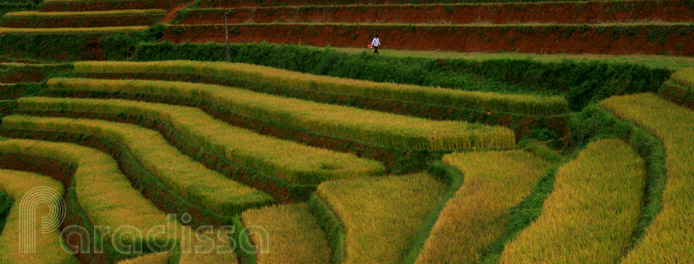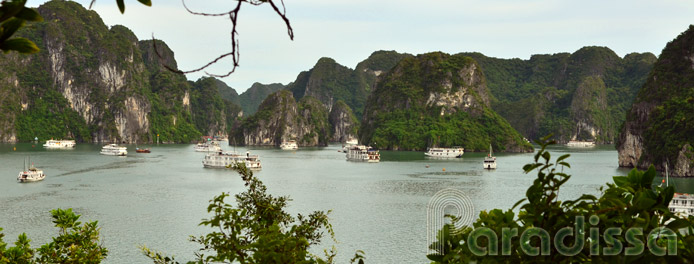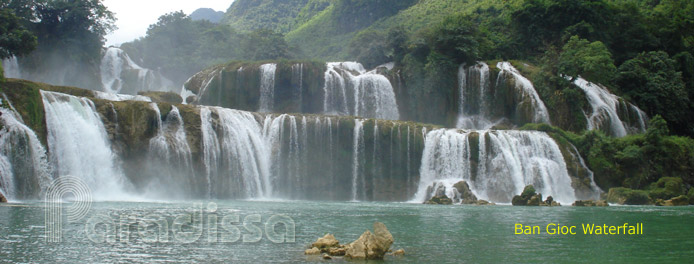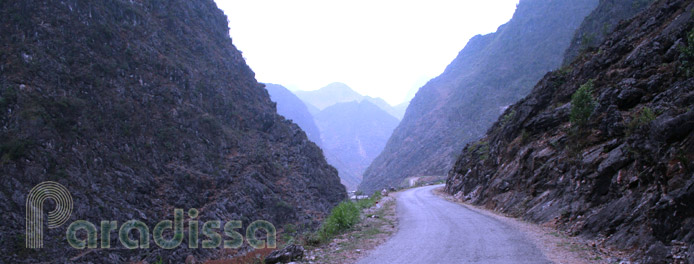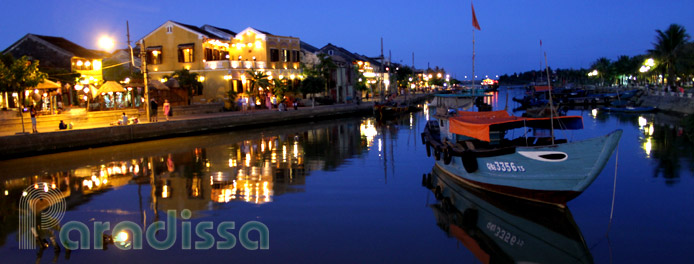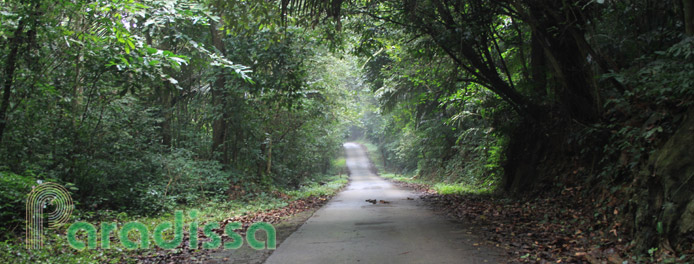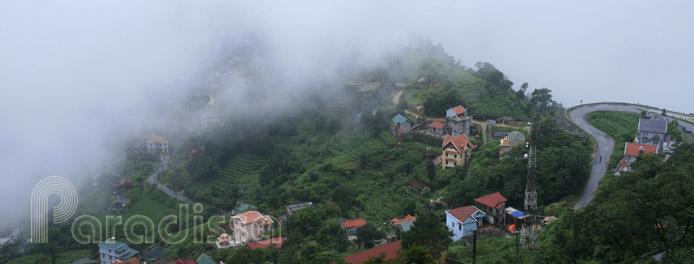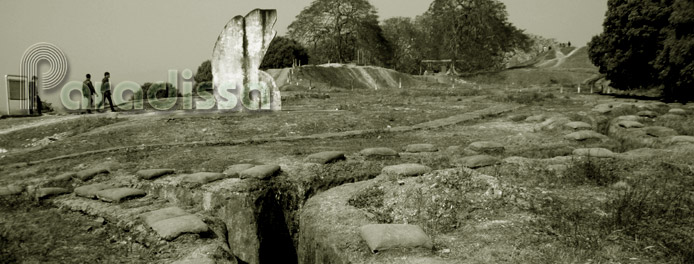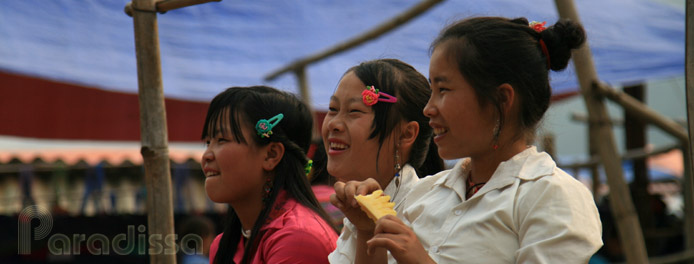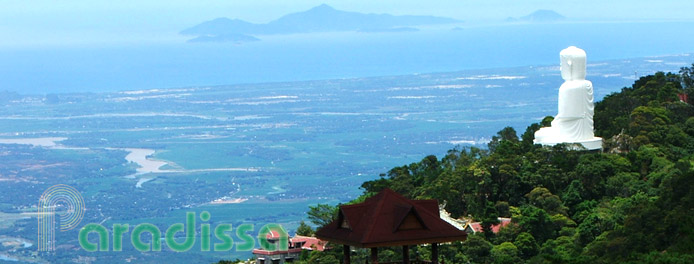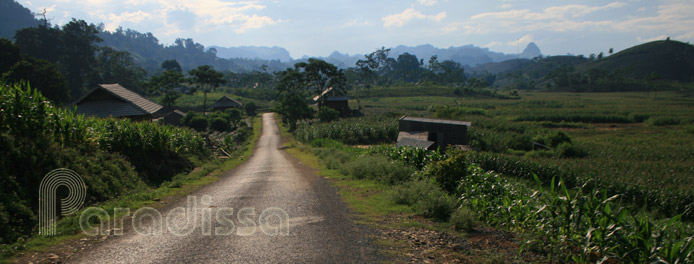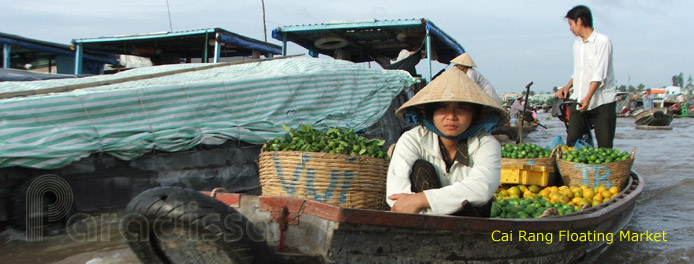Thanh Pho GJa Nang Holiday Weather today
Date/time of update: April 20, 2025, 1:46 am, Timezone: GMT+7
Clear Sky
Temperature: 29.95°C
Temperature feels like: 34.92°C
Minimum Temperature: 29.95°C
Maximum Temperature: 29.95°C
Atmospheric pressure: 1010hPa
Humidity:70%
Visibility: 10000m
Wind speed: 1.54m/sec
Wind Direction: 150 degrees
Cloudiness: 0%
Sunrise: 2025-04-19 10:29:28
Sunset: 2025-04-20 11:03:23
Da Nang City in Vietnam is the biggest commercial and industrial city in the Central Region of the country. Da Nang is among the most popular travel destinations in Vietnam with those of the finest sandy beaches in the country and in the world.
Geography of Da Nang
Da Nang is bordered to the north and north-west by Hue, to the east by the East Vietnam Sea, to the south and south-west and west by Quang Nam. Da Nang possesses a coastline of 60km with several sandy beaches.

The Non Nuoc Beach, Da Nang, Vietnam
The terrain of Da Nang is characterized with several forested high mountains to the north and the west. The Hai Van Pass (Ocean Cloud Pass) stretches from the west to the east making up the different weather patterns between the region to the north and that to the south. There are small plains along the coast.
Apart from the inland, Da Nang also has an offshore archipelago, the Paracel Islands. In 1974, while the war was raging inland Vietnam, China took advantage of the situation attacking the Paracel and seized the islands from South Vietnam troops after a naval battle.
 Rivers in Da Nang include Thu Bon – Vu Gia River system most of which are in Quang Nam, and the Cu De River and Thuy Toan River. The rivers start from the high mountains to the west and flow eastward discharging the waters into the East Vietnam Sea. The rivers are all short in length and the river gradients are steep.
Rivers in Da Nang include Thu Bon – Vu Gia River system most of which are in Quang Nam, and the Cu De River and Thuy Toan River. The rivers start from the high mountains to the west and flow eastward discharging the waters into the East Vietnam Sea. The rivers are all short in length and the river gradients are steep.
Da Nang Climate
Da Nang has a tropical monsoon climate with 2 seasons: the dry season from January through July and the rainy season from August to December. The temperatures in January-March are 20-28oC; in April-June are 31-38oC, in July-September are 26-34oC, in October-December are 20-29oC. There are occasional typhoons in the rainy season.
History of Da Nang
Da Nang Vietnam was only a small port for goods in transit and ship repair in the middle of the 16th century. That time, Hoi An was a busy commercial center of the southern Vietnam. Da Nang gradually developed into a commercial port replacing Hoi An in the early 18th century, when European shipbuilding was improved and large deep draught vessels could easily enter Da Nang Bay.
In 1835, after King Minh Mang ordered: “European vessels are not allowed to anchor to do trade at any harbors except for Han Port”, Da Nang became the largest commercial port in the Central Region. The local small-scale industries, including shipbuilding, preliminary processing of agricultural, forestry and fishery products; trade and services prospered accordingly.
The French colonists, after establishing their domination of the whole of Viet Nam in 1889, separated Da Nang from Quang Nam Province and renamed the city to Tourane, and they put it under the control of the Governor General of Indochina.
In the early 20th century, Tourane was developed on a European model, which focused on social infrastructure and manufacture technology. Lots of economic activities took shape and thrived, such as agricultural production, small-scale industries, export product processing (tea, food, beverages, ice, alcohol, fish sauce, dried fish), ship building and repair, and services. Together with Hai Phong and Saigon, Tourane became an important trading center of the Vietnam.
In 1950, French gave the authority over the city to the Bao Dai government. With the failure at Dien Bien Phu, the French gave up fighting further. After the Geneva Accord, Da Nang belonged to southern area of the provisional demarcation line dividing Vietnam into the North and the South.
In March 1965, American marine units landed and started to set up a big military complex in Da Nang. The city was defined as a centrally governed city in 1967 and built into a political, military and cultural center of the 1st and 2nd tactical zones.
 Military bases and such infrastructure as the airport, ports, warehouses, roads, public works, communication stations, and banks were constructed. Industries flourished resulting in industrial zones substituting handicraft workshops. For example, Hoa Khanh Industrial Zone was used for oxygen, acetylene and detergent production, grinding and textiles industries. However, the devastating war made thousands of rural people flee in refugee camps. Urban slums appeared, social evils increased and production came to a standstill.
Military bases and such infrastructure as the airport, ports, warehouses, roads, public works, communication stations, and banks were constructed. Industries flourished resulting in industrial zones substituting handicraft workshops. For example, Hoa Khanh Industrial Zone was used for oxygen, acetylene and detergent production, grinding and textiles industries. However, the devastating war made thousands of rural people flee in refugee camps. Urban slums appeared, social evils increased and production came to a standstill.
In 1975, after reunification, Da Nang (temporarily under Quang Nam – Da Nang Province) began to overcome the war’s severe consequences. Regardless of difficulties, the city’s rehabilitation and development had some results, especially after the Reform in 1986.
On 6 July 1996, the tenth session of the 9th National Assembly of the Socialist Republic of Vietnam passed a Resolution separating Quang Nam – Danang Province into Quang Nam Province and Danang City, which was directly under the Central Government's administration. The new city of Da Nang consisted of the previous Da Nang, Hoa Vang Rural Districts and Hoang Sa Island District (The district of the Paracel Archipelago).
Da Nang Travel Guide, Da Nang Major Tourist Attractions
Da Nang is an amazing destination which is studded with several tourist attractions. There are several sandy beaches on the coast from Da Nang to Hoi An. And that is not all, there are several more…
1/ The Cham Museum
The amazing museum located on the riverside is dedicated to artifacts from Champa Kindom of the Cham People. The kingdom experienced its heyday in the central area of Vietnam from the 2nd century A.D through the 15th century. The artifacts were brought here from My Son - Cham Holy See by the French Archaeologists. The museum can be explored for 2 hours. It is advised to have an expert tour guide on site on your tour of the museum.
2/ The Marble Mountains, Non Nuoc Beach and the Stone Carving Village
The Marble Mountains are a range of mountains bordered by the white sand Non Nuoc Beach. There are five mountain peaks which are said to represent the Five Earth Elements. The sacred, lyric and poetical ambiance of pagodas, grottoes, trees and white sand beaches combined with the murmuring sounds of the lapping waves would make your tour of the Marble Mountains a great experience.
In ancient oriental philosophy, Metal, Wood, Water, Fire, Earth are five elements that create the universe. Five is the paramount important number in life; it's the beginning number of all. Visiting the Marble Mountains is believed to bring the visitors and travellers the harmony of the universe.
3/ Non Nuoc Beach
The lovely beaches characterized by blue ocean and fine white sand beaches was a major R&R base for US servicemen and war reporters during the war.

The Non Nuoc Beach at Da Nang City
The complex of Marble Mountains, the Stone-Carving Village and Non Nuoc Beach can be explored for half a day; alternatively you can stay at one of the the luxurious 5 star resorts here. Please contact Paradissa for more information on our luxury beach holiday packages for Da Nang.
4/ Other Beaches
While Non Nuoc Beach was the most famous beach due to the history. There are several other sandy beaches in Da Nang like Pham Van Dong, Bac My An, My Khe… The beaches are along the coastline all the way to Hoi An (over 30km).

Patches of sugarly sand beaches outside of Da Nang City
5/ Son Tra Peninsula
The Peninsula runs its way over 10km northeast of Da Nang City into the sea. The highest peak is called Son Tra Mountain which is over 693m above the sea. This is a nature reserve with diversity of flora and fauna. On the mountains, there are still more than 30sq. kilometers of natural forests.

From the top of the mountain, we can adore the breathtaking view of Da Nang City as well as the blue sea. Descending the mountains, we'll follow Suoi Da streams with crystal clear water which snake their ways through the forests into the sea. The green mountain cliffs and forests of Son Tra are ringed by the powdery white sand beaches.

6/ Ba Na Hill Station
The hills are located 40 kilometers southwest of Da Nang, Mount Chua at Ba Na is 1,487 meters high above the sea level. Ba Na offers a commanding view of the whole surroundings including Da Nang City, Son Tra Peak and the blue ocean. Ba Na was found and built into a hill station when the French were looking for a place to get away from the heat of the Central Region of Vietnam. There are many French-styled villas left.

At Ba Na, there are four seasons in a day: spring in the morning, summer at noon, autumn in the afternoon, winter in the evening. While the months from May to August are the hottest period (up to 38oC) in the Central Region of Viet Nam, the temperatures at Ba Na fluctuate from 17 to 20 degree Celsius, 22-25oC in maximum. It drops down to 15oC at night.
The Ba Na Nature Reserve has 544 species of high-altitude flora, 256 species of animals, in which there are 6 of flora and 44 of fauna listed in the Vietnam Red Book (for endangered species in Vietnam).
There are a number of sites which can be accessed by easy walk, some by hard trekking. It's recommended that you have hiking boots while trekking here.
Ba Na can be done as a day trip from Da Nang or Hoi An; or can be spent for a relaxing getaway holiday. Ba Na is seldom visited for the foreign travellers to Vietnam.
7/ The Dragon Bridge
The bridge was the result of an ambitious plan by the local government. The phases of the works: design in 2005, construction in 2009 and work completed in 2013. There are a fire show and a water show on the bridge every Saturday and Sunday evening at 09:00 P.M during which the dragon spits out fire balls and water, one follows another.
Things to do in Da Nang
There is a wide choice of tours and vacation packages in Da Nang ranging from relaxing cultural tours, snorkeling tours.. to luxury holidays. Paradissa offers a wide range of trips including, family tours, luxury holidays, adventure trips in Vietnam which include in-depth discovery of Da Nang.
1/ Luxury Travel
There are several luxury hotels and beach resorts in Da Nang where you could get the very first class luxury travel services.

2/ Beach Holidays
For the travelers who just want to relax, you may consider the Son Tra Peninsula or the Non Nuoc Beach where luxurious resorts and a wide range of luxury travel services are available.
3/ Escape Vacations
If you want to seek cool climates, then better quit the city for Ba Na Hill Station where luxury hotels and resorts are also available.
4/ Golf Tours
Da Nang is home to several World-Class Golf Courses that certainly meet the requirements of the most demanding golfers!
5/ Rail Tours
Get on an ancient steamed locomotive and travel on the most scenic seaside rail track in Vietnam from Da Nang to Hue passing through the sublime Hai Van Pass could be a great experience of a lifetime!

Da Nang from Hai Van Pass
6/ Sightseeing Tours
You can have a sightseeing tour of the city with the fantastic Cham Museum with artifacts from the Cham culture which date back from the 2nd century A.D or just get lost in the exotic local markets. You can travel to the Marble Mountains and get soaked in the Buddhist atmosphere.

A theme park on Ba Na Hill, Da Nang
Da Nang can be used as the base for exploring the ancient port town of Hoi An, the extinct Kingdom of Champa or My Lai Massacre Site.
Paradissa, an experienced Vietnam tour operator with several years of arranging luxury tours in Vietnam, offers luxury holidays to Da Nang Beach and other premier beaches in Vietnam. We have hosted several luxury golf tours to Da Nang on which you play games at the finest golf courses in central Vietnam either by the blue ocean or on Ba Na Hill amid cool climate. You may want to contact our travel experts for a tailor made holiday package of your dream in Da Nang then.
Accommodation in Da Nang
There are many hotels in Da Nang ranging from simple guest houses to luxury 5 star hotels, resorts and spas. There are luxury hotels and resorts with convenient location in the city or right on the beach. All resorts along the coastline from Son Tra Peninsula to Hoi An Port Town have private beaches with fine sand.
Getting there and away
By air
You can travel to Da Nang from Ha Noi, Hue, Nha Trang, or Sai Gon easily. There are many daily flights between Da Nang and Ha Noi/ Ho Chi Minh City which take 1h10 minutes. There are daily flights between Da Nang and Nha Trang - Cam Ranh; the flight time is 1h20 minutes due to aircraft type. There are also direct flights between Da Nang and Buon Ma Thuot, Hai Phong, Can Tho, Pleiku, Da Lat, Vinh.
There are several daily direct flights between Da Nang and Singapore, Hong Kong, Seoul, Bangkok, Kuala Lumpur, Beijing, Siem Reap, Japan…
By road
Da Nang is 500km north of Nha Trang, 130km south of Hue City, 40km north-west of Hoi An Ancient Town. Between Da Nang and Hoi An, you can travel by public bus, by taxi, or motorbike. The drive takes 30 minutes via a breathtaking coastal road with several sandy beaches.
Da Nang is 40km from Ba Na Hill Station. You need to have private car/motorbike to get to Ba Na from Da Nang.
Da Nang is 10km from Son Tra Peninsula. You can do a day trip from Da Nang to Son Tra; remember to bring along food and water for this trip.
Da Nang is 300km from Kon Tum via Ho Chi Minh Road.
By railway
Da Nang Railway Station is right in the city and there are several daily trains between Hanoi and Saigon that stop at Da Nang. Traveling by train is convenient nowadays.
Getting around
On foot: Da Nang City can be explored on foot since it is fairly small. Having a stroll around the riverside area is recommended. Still if you want to explore further, you may want to have a car or motorbike.

Linh Ung Pagoda on Ba Na Hill at Da Nang
By Xe Om (Motorbike taxi):
There are many Xe Om drivers waiting for clients on many street corners. It's necessary you agree on the price before setting off.
By Taxi:
You can navigate around Da Nang and the surroundings by taxi. Price needs to be settled before commencing the trip. Otherwise the taxi needs to have a meter.
By Boat:
There are boat restaurants with nightly dinner cruise on the Han River. The food may be just fine, but the experience is just relaxing.
Da Nang Average Monthly Rainfall and Temperatures




